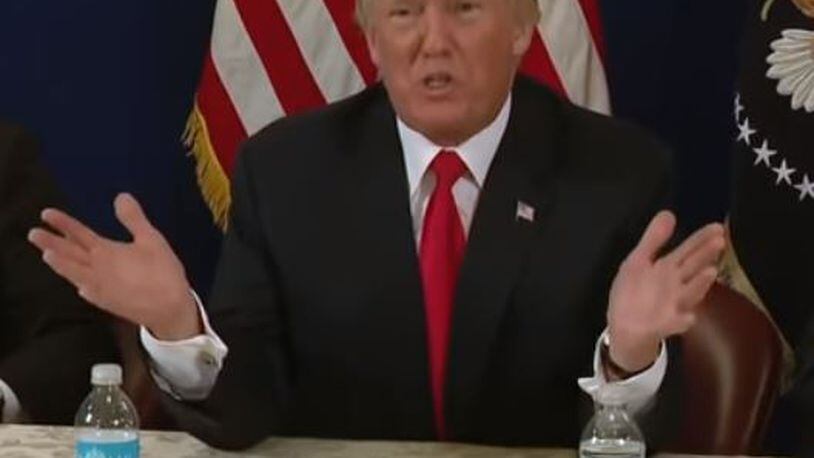1. If McConnell disappears, the music stays the same. Sure, get rid of McConnell. For the sake of argument, let's say that somehow he is replaced by a more conservative Republican, like Sen. Ted Cruz (R-TX). Or even his fellow Bluegrass State Republican, Sen. Rand Paul (R-KY). They might emphasize different arguments, and maybe try to schedule some different types of bills and votes. But they aren't going to be able to suddenly create 60 votes for Republican priorities - or even 50 votes in some cases. This argument reminds me a lot of the big push to get rid of John Boehner as Speaker of the House. It sounds great in theory, but it doesn't change much. Remember - even if you have 52 Republican Senators who are fully on board with Donald Trump, fully on board with the Tea Party and other conservative groups, you still don't have 60 votes in the Senate, and you might not have the votes to pass tax reform or infrastructure legislation either.
2. There's no evidence of a Senate GOP rebellion. In all of the interviews of recent weeks that reporters have done with Senators on the Republican health care debacle, there were lots of questions asked about the leadership of Mitch McConnell, and nowhere did I pick up on any signs that McConnell's job was in trouble. If anything, fellow GOP Senators felt like he was in a no-win situation on health care, and did better than anyone could expect to get 49 votes on a GOP "skinny" bill that barely did anything to change the Obama health law. Would there be some Republicans ready to push him off the second floor Capitol balcony? Sure. But there doesn't seem to be a broader uprising against the Senate Majority Leader.
3. McConnell hears words of support from fellow Republicans. While Senators are spread around the country on their summer break, some jumped on social media to express their support for McConnell - and by extension - pushed back against the President's public rebuke. "I fully support him," said Sen. Orrin Hatch (R-UT), who said McConnell was "the best leader we've had in my time in the Senate, through very tough challenges." Meanwhile, from Iowa, there were words of praise on the radio about McConnell's leadership from Sen. Charles Grassley (R-IA). And there have not been any rumblings from McConnell critics, who have been outnumbered for some time in the Senate. McConnell "is the single biggest reason why Neil Gorsuch is now a SCOTUS justice," said Sen. Thom Tillis (R-NC). And for now, McConnell doesn't seem to be going anywhere.
4. A reminder of broader GOP dysfunction. There's no law that says the President shouldn't complain about his party's leaders in the Congress. It's obvious that lots of Republican voters love that the President is giving McConnell a hard time. But it is also a reminder - yet again - to GOP Senators, that Mr. Trump may not have their best interests at hand. A number of Republican Senators were horrified at the treatment by the President of their former colleague, Attorney General Jeff Sessions, who was put on the public barbecue in similar fashion as McConnell. That action by the President did not instill fear in the hearts of GOP Senators - instead it was disappointment, and it galvanized a number of Republicans to stand together against the President. In the past few weeks, I did not sense the seeds of any revolt against McConnell because of the health care failure. After Labor Day, the President is going to need every GOP vote he can find.
5. The truth in Trump's complaint on health care. One thing that no one could really dispute about President Trump's jabs at the Senate Majority Leader were over how the GOP has dealt with the issue of the Obama health law. As I have reported on for the last seven years, Republicans have pressed to repeal the health law from the outset, but they were never really ready with a full replacement. Last year, I got a lot of nastygrams on Twitter and Facebook when I would tell people that there was no GOP agreement on how best to replace Obamacare ('you are biased!' was a common refrain). Except the last six months have proven that assessment correct. The GOP really didn't have a plan that was ready to come off the shelf when the President took the oath of office. Trump may not have his own plan, but his party didn't really have one either.
About the Author
